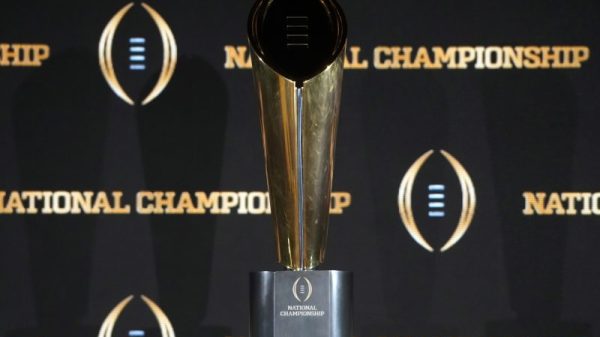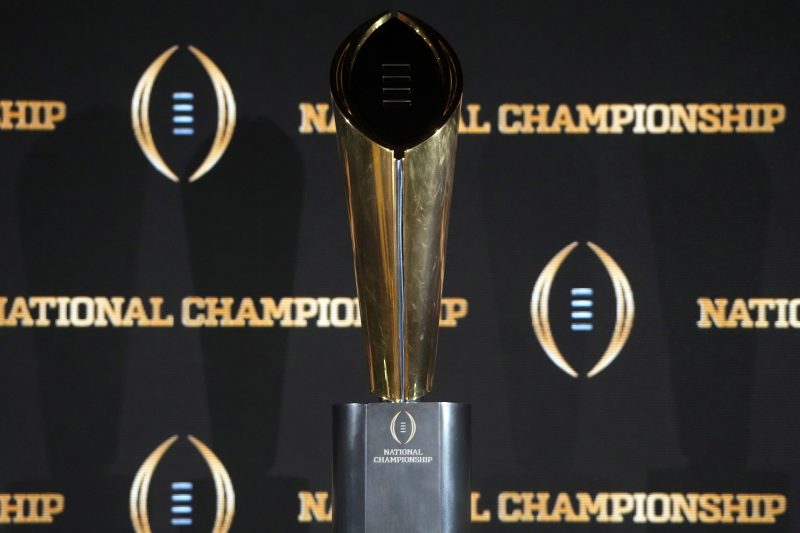The past 15 years have been a transformative time for the college football postseason. A sport that had a single championship game between two teams as recently as 12 years ago now has a 12-team playoff that appears destined to expand in the coming years.
If the Big Ten has its way, the group of teams competing for a national championship would be quite large — to put it mildly.
The league, one of the two most powerful and influential conferences in college athletics, has floated the idea of a 24- or 28-team playoff, according to a report on Saturday, Aug. 16 from ESPN. NBC Sports, which confirmed the Big Ten’s potential plan, reported that it would be a 28-team event.
The idea, according to both outlets, is in the “very early stages.” Big Ten commissioner Tony Petitti ran the idea by the conference earlier this week and it has started to be shared by others, according to ESPN.
Big Ten’s College Football Playoff proposal
Under the proposal, conference championship games would be scrapped, and there would be a sizable chunk of automatic bids awarded to each of the Power Four conferences. In a 28-team model, according to ESPN, the Big Ten and SEC would each receive seven bids to the playoff, while the ACC and Big 12 would each get five. That would leave two spots for the non-power conferences, plus two at-large selections. The field would be seeded by the College Football Playoff committee, which would also be tasked with picking the at-large inclusions.
In that format, there would be 20 on-campus games. In the inaugural 12-team playoff last year, there were four on-campus games in the first round, a popular feature for fans across the country who enjoyed seeing postseason games inside storied venues at the home campuses of Notre Dame, Ohio State, Texas and Penn State.
Big Ten College Football Playoff reactions
Playoff expansion proposals are generally poorly received from fans who often enjoy things the way they are, but even by that standard, the Big Ten’s idea was incredibly unpopular. Shortly after ESPN and NBC’s reports, fans and media members flooded social media to pan the suggestion:
A primary argument against a 24- or 28-team playoff would be the diminished importance of the regular season, with teams able to lose as many as four or five games and still be alive in the hunt for a national championship. Based on conference standings from the 2024 season, a 28-team playoff would have included 8-5 Iowa, 9-4 LSU, 9-4 Alabama, 8-5 Baylor, 9-4 Colorado and 9-4 Louisville.
As recently as 1997, college football had no postseason beyond bowl games, with human polls determining the national champions. The 2014 season marked the arrival of the first College Football Playoff, a four-team tournament that replaced the widely panned Bowl Championship Series.
After 10 years of the playoff being a four-team event, it tripled to 12 teams last season, with Ohio State, the playoff’s No. 8 seed, winning the national title.
























